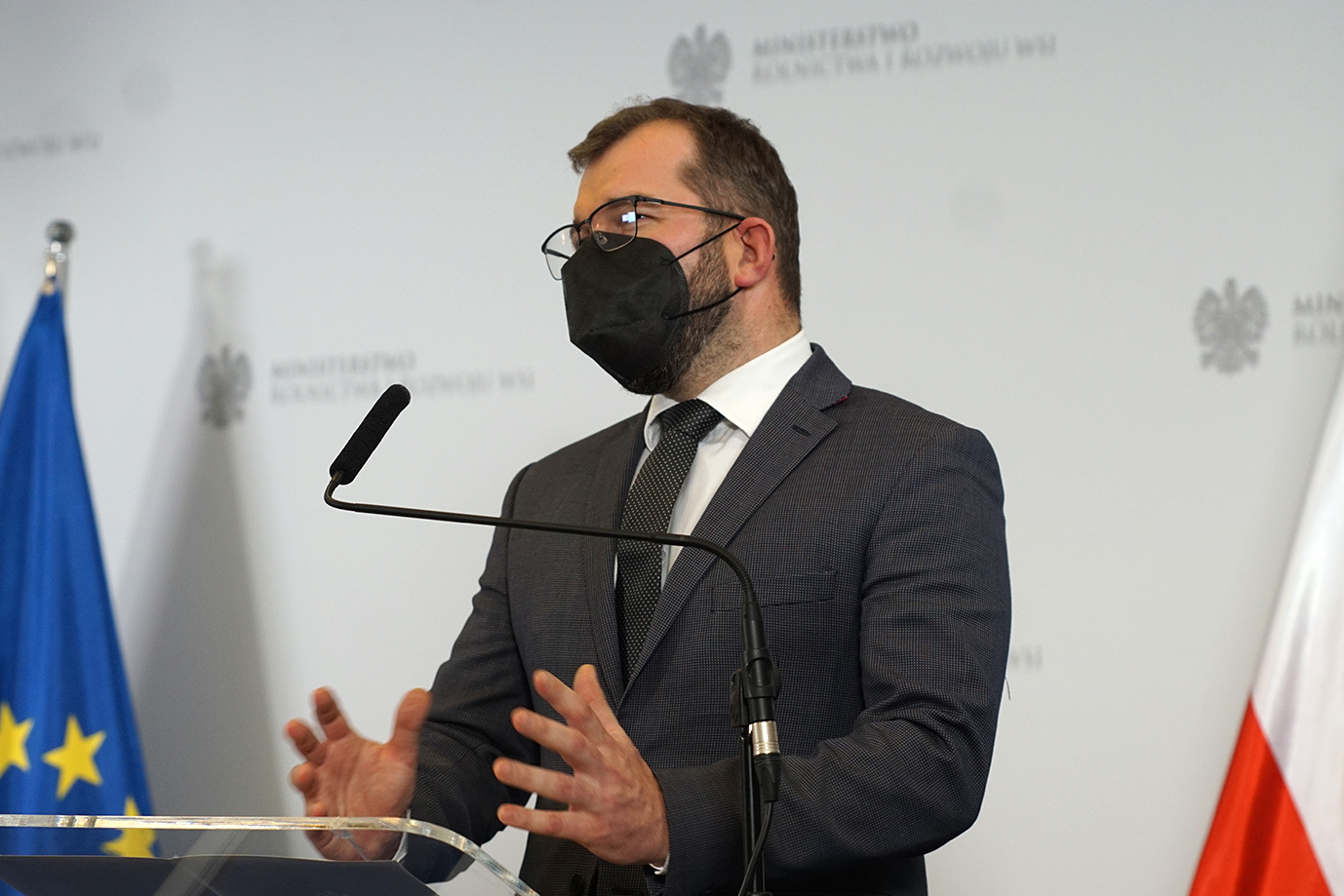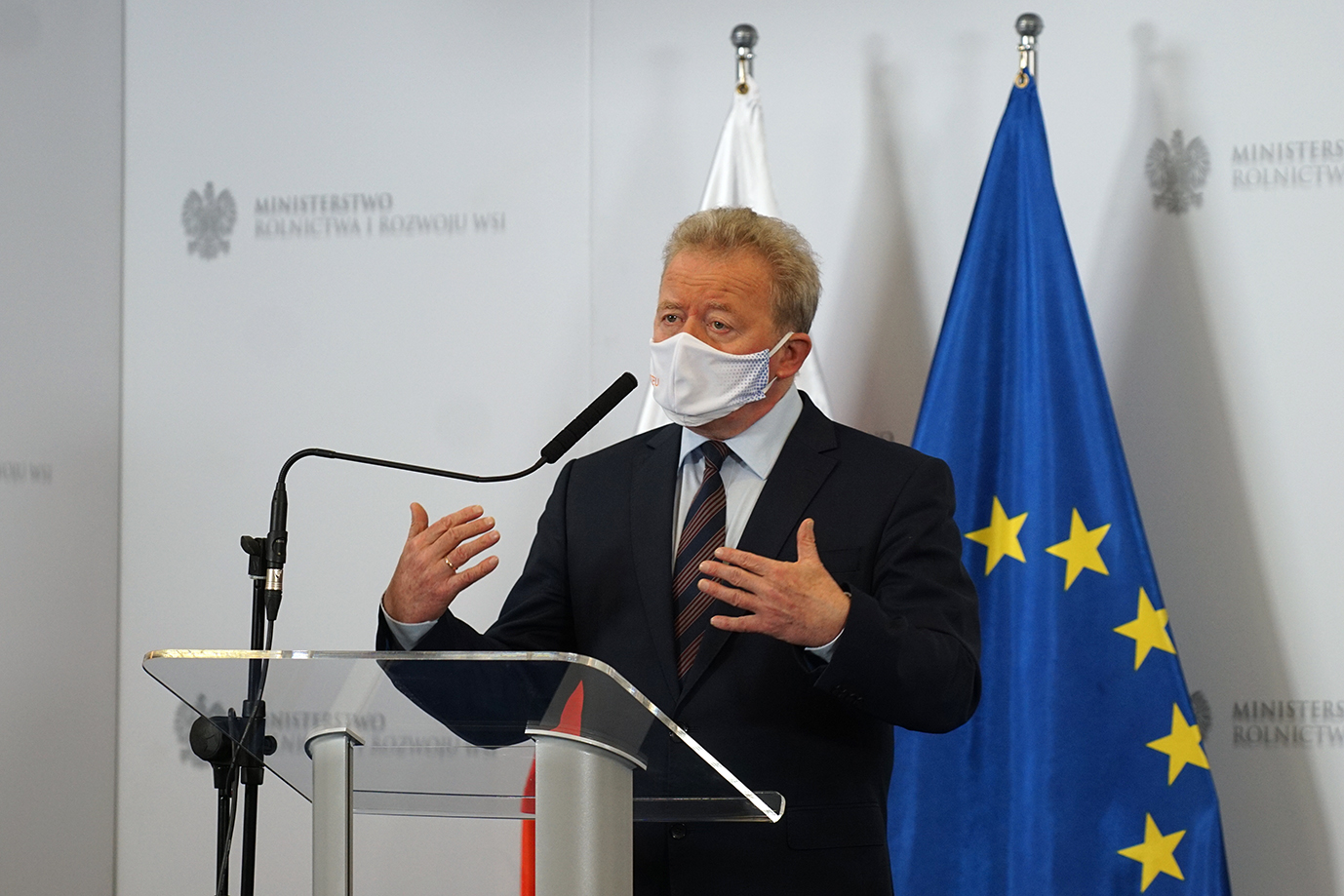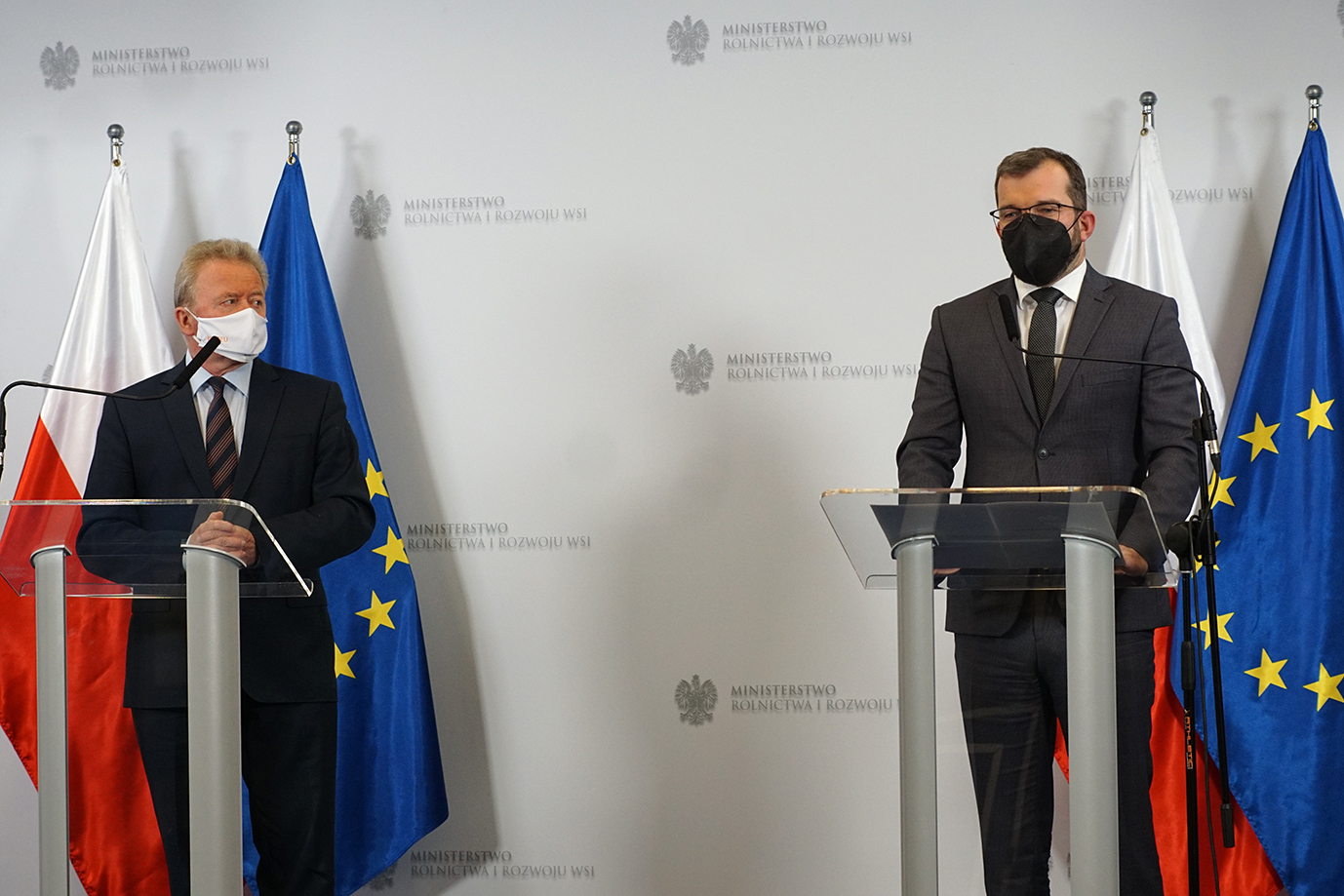The European Commission gives the green light to the green reform of Polish agriculture
22.12.2020
“In contrast to my predecessors, I place emphasis on balance in the agricultural economy and support for family small and medium-sized farms and not, as was the case previously, large enterprises,” Grzegorz Puda, Minister of Agriculture and Rural Development, emphasized.

Today, a joint press conference was held between Minister Grzegorz Puda and the European Commissioner for Agriculture, Janusz Wojciechowski, on the recommendations for the Strategic Plan for the new Common Agricultural Policy.
The Minister of Agriculture and Rural Development has announced that this plan provides support for the direct payment scheme, the aim of which is to stabilize the incomes of small farms, and reduce the disparities between small- and medium-sized farms and large farms.
“We consider it essential to improve the conditions of farming and living in the countryside to be more committed to improving the quality of life of the inhabitants of rural areas,” the Minister said.
Minister Puda underlined that Commissioner Wojciechowski and he had believed that CAP funds should be allocated directly to the countryside, and that all linear activities, such as roads and sewage systems, should be financed from other sources.
The Minister of the Ministry of Agriculture and Rural Development has also assured us that support for young farmers will be continued. He also highlighted the importance of ensuring knowledge transfer and innovation.
“We want agriculture to be modern, ecological but, above all, digitized, one that can compete on the European market, but also outside it,” the Minister said.
He also said that a broad list of support instruments had been proposed, which allows for the introduction of new production technologies on small family farms that play a major role in environmental and climate protection.
The Minister has drawn attention to the fact that support for small processing and agricultural retail trade will also continue through various types of market mechanisms. Support for the vertical and horizontal organization of producers, in particular cooperatives of family farms, is planned.
The Minister of the Ministry of Agriculture and Rural Development stressed that all these elements would shorten the food supply chain.
“We want these chains to be shorter, so that transport does not have to be carried out over long distances,” the Minister said.
Minister Grzegorz Puda stressed that all support instruments would be effective if complementary support, on a large scale, for rural development through cohesion policy was provided concurrently.
“All the elements we are talking about today — the Commission recommendations, the new CAP — are part of the agricultural programme of Law and Justice, which is currently being implemented,” the Minister said.
“The reform of the Common Agricultural Policy which we are currently conducting throughout the European Union is at the legislative stage,” Janusz Wojciechowski, European Agriculture Commissioner, said.
The final negotiations between the Parliament, the Council and the European Commission will result in three main regulations as a pillar of the CAP reform.
“The most important of these will be the regulation on strategic plans,” the Commissioner said.
Commissioner Wojciechowski says that this will be an extensive document, in which the entire CAP will be divided into specific measures in each of the 27 Member States. These plans will ultimately be accepted by the European Commission.
According to the European Commission, the most important issue to be solved in Poland is small farms.
“The point is that a greater stream of funds should flow to these farms,” the Commissioner said.
Commissioner Wojciechowski highlighted that 4 million farms had been closed in the EU over the last decade and this must be prevented.
“Small- and medium-sized farms are crucial for sustainable development, and for rural development in general. It has to be designed in a way that hundreds of thousands of farmers benefit from the programmes,” Commissioner Wojciechowski said.
The Commissioner also drew attention to the problem of short supply chains, as agri-food products are transported at an average distance of 177 km across the EU.
“We are strongly committed to producing and selling food as close as possible,” the Commissioner said.
He also stated that the processing industry in Poland needs to be reconstructed as the current situation is bad. It is very concentrated. There is no local processing industry.
“Poland is not a country that is doomed to export only. Poland has the opportunity to locate its production in the internal market. We need to make better use of these opportunities,” Commissioner Wojciechowski said.
A further issue highlighted by today’s guest of Minister Grzegorz Puda is the need to commit all possible funds for rural development.
“There will be no agriculture if people run away from the countryside. This may be the case if living conditions in the countryside do not improve significantly,” the Commissioner said.
He drew attention to the need to improve communication and public transport.
Janusz Wojciechowski also informed that the new CAP places great emphasis on animal welfare.
“We are planning to include animal welfare as one of the eco-schemes. A part of the direct payments will only go to those farms that join the enhanced welfare programmes,” the Commissioner said.
He also said that support from the second pillar for investment in this area would be maintained.
The Commissioner emphasized that, at the last meeting of the Council of Agriculture Ministers, a decision had been taken to create a European animal welfare label. It will be granted only to products that have maintained high animal welfare conditions at all stages.
“This will be a great market asset for European agriculture, and Polish agriculture has special conditions in this area, as shown, for example, by the Welfare Plus Programme, which enjoys great interest from farmers,” Commissioner Wojciechowski emphasized.
“The European Commission gives the green light to the green reform of Polish agriculture,” the Commissioner said.
At the end of the conference, Minister Grzegorz Puda urged all interested parties to make comments and recommendations, which would be carefully analysed, so that the Strategic Plan would enable further modernization of Polish agriculture and the Polish countryside with the best possible experience, traditions and development potential.



